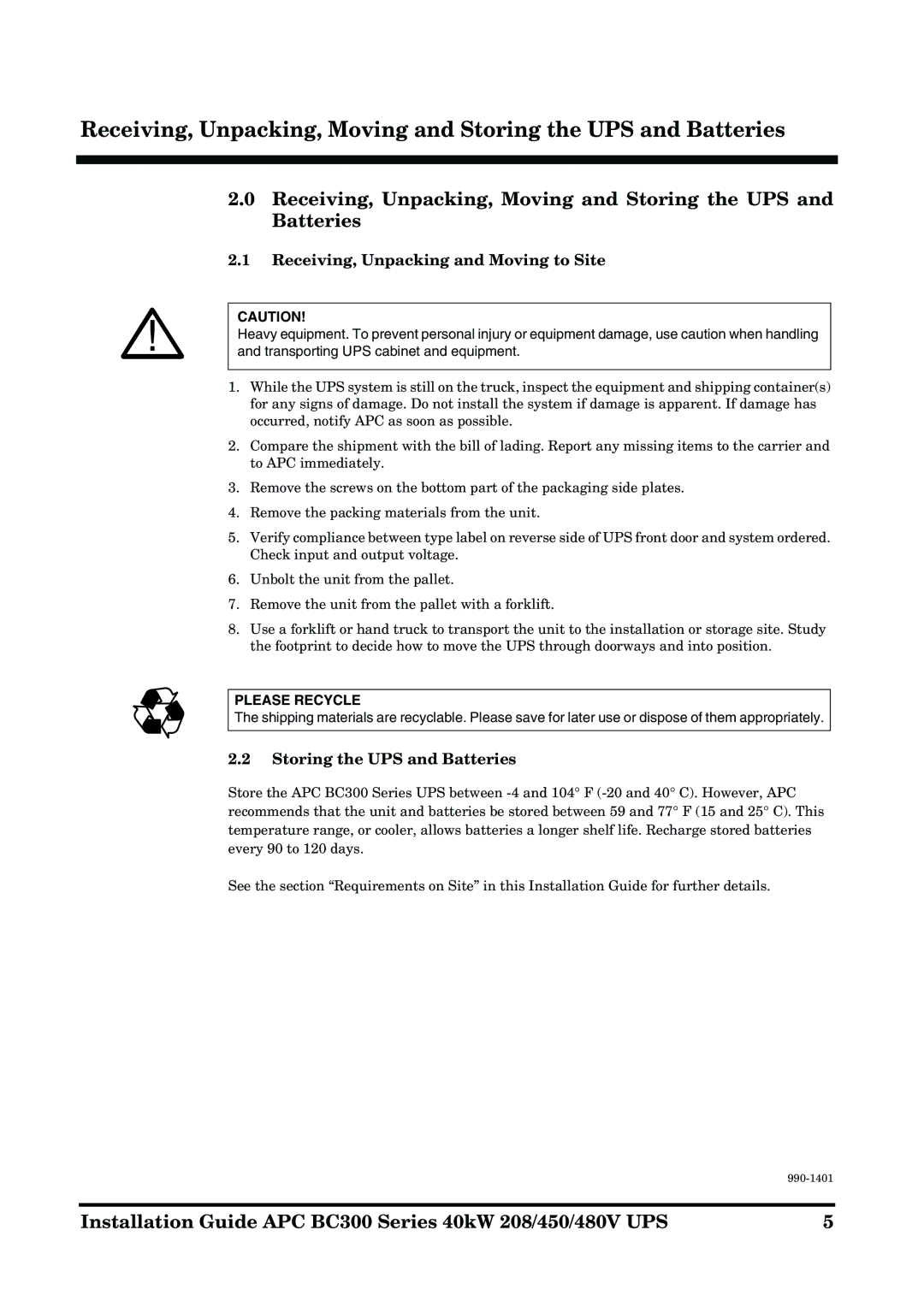
Receiving, Unpacking, Moving and Storing the UPS and Batteries
2.0Receiving, Unpacking, Moving and Storing the UPS and Batteries
2.1Receiving, Unpacking and Moving to Site
CAUTION!
Heavy equipment. To prevent personal injury or equipment damage, use caution when handling and transporting UPS cabinet and equipment.
1.While the UPS system is still on the truck, inspect the equipment and shipping container(s) for any signs of damage. Do not install the system if damage is apparent. If damage has occurred, notify APC as soon as possible.
2.Compare the shipment with the bill of lading. Report any missing items to the carrier and to APC immediately.
3.Remove the screws on the bottom part of the packaging side plates.
4.Remove the packing materials from the unit.
5.Verify compliance between type label on reverse side of UPS front door and system ordered. Check input and output voltage.
6.Unbolt the unit from the pallet.
7.Remove the unit from the pallet with a forklift.
8.Use a forklift or hand truck to transport the unit to the installation or storage site. Study the footprint to decide how to move the UPS through doorways and into position.
PLEASE RECYCLE
The shipping materials are recyclable. Please save for later use or dispose of them appropriately.
2.2Storing the UPS and Batteries
Store the APC BC300 Series UPS between
See the section “Requirements on Site” in this Installation Guide for further details.
| |
|
|
Installation Guide APC BC300 Series 40kW 208/450/480V UPS | 5 |
